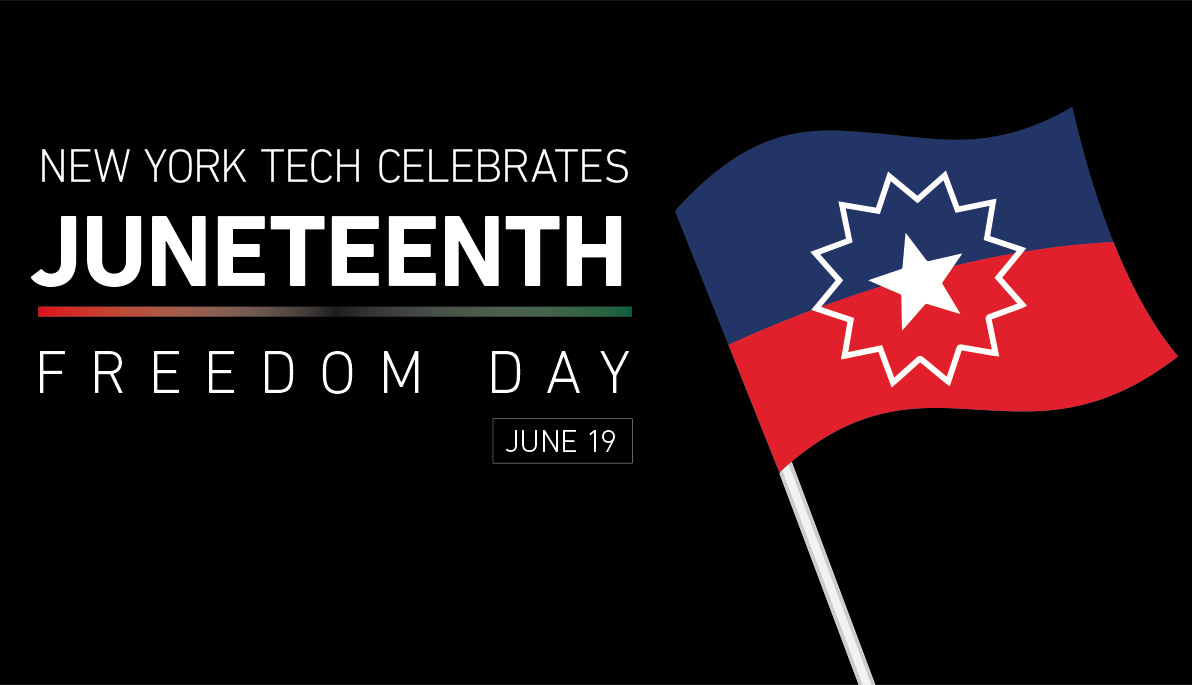News
Adjunct Instructor Jamel Vanderburg on the Importance of Juneteenth
June 16, 2021
In an opinion piece for The Box, Jamel Vanderburg, M.P.A., adjunct instructor of interdisciplinary studies, talks about the importance and significance of Juneteenth.
This week, our country celebrates the 156th anniversary of Juneteenth. Known as the unofficial second Independence Day, it serves as the day African Americans were freed from slavery, and it served as the catalyst to the Reconstruction era. While there was an aura of uncertainty about how the nation would move forward, it helped lead to a reunification of separated families, more representation in public office, businesses being built, and the hope that the African American community as a whole would thrive after almost 250 years in bondage. The dreams our ancestors had about finally being seen and treated as equals to our white counterparts would finally become a reality.
As I think about Juneteenth and its cultural significance, I wonder if the hope that existed in 1865 has been attained or is actually attainable. The African American community has had many notable accomplishments in all areas of industry. In the past 20 years alone, we have seen more Black businesses built, more representation in media, sports, business, and politics with the election of Barack Obama as the first African American President of the United States in 2008, and our current Vice President Kamala Harris, the first African American/Asian American to hold this coveted office.
However, with a multitude of accomplishments, why are we still fighting for equity and reminding people that Black lives matter? The Black Lives Matter movement should not just be relegated to ideas around criminal justice reform but the tangible and intangible areas of life that affect us daily. Our lives matter regardless of political affiliation, economic status, physical condition, or personal history, and the color of our skin should not dictate the battles we face, how we fight, and how we overcome them.
Why do our communities tend to be behind the curve in economic power, healthcare, public office, and all points in between? Why are we more likely to be stopped by the police? Why is the perception that for every four to five steps we move forward, we are still either steps behind our counterparts or knocked down to either start over again or overcome even more hurdles?
For me, Juneteenth is a reminder that there is still much more progress to be made for African Americans to break all barriers of oppression and have more seats at the tables as decision-makers and true change agents. The fight for Black lives to matter will continue until it becomes a way of life and not multiple movement blips in history.
For that to happen, we must remember that our voices must never be silenced and that our votes and collective organizing are necessary to show why we matter. We can make sure we are represented and not grow weary knowing that the work we do today gives us “hope” for tomorrow.
To close, I ask you to ponder the following question: Have the hopes for the progress of African Americans made the dreams of our ancestors a reality, or is the reality that we’re still dreaming?

_Thumb.jpg)


